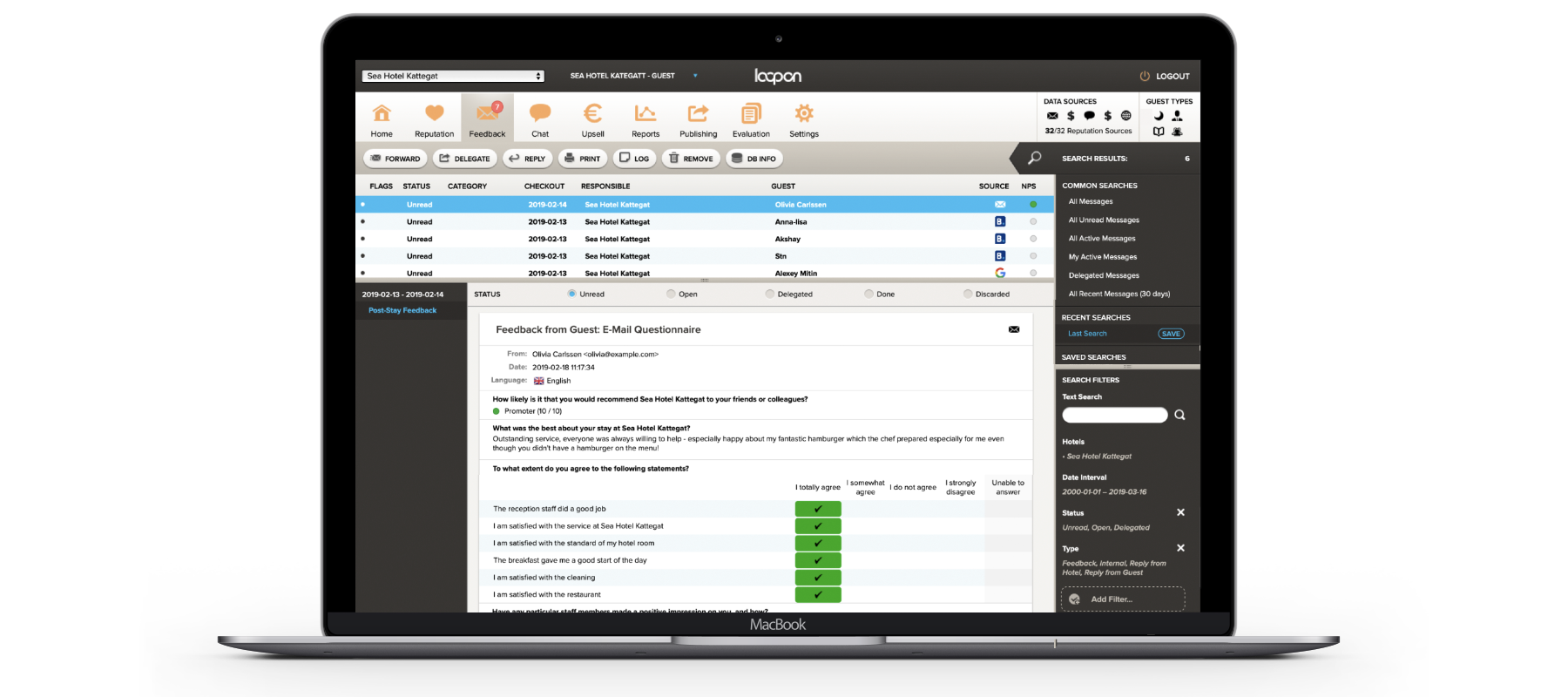
Our latest blog post discusses why simply collecting feedback isn’t enough and how actively engaging in responding to feedback will see your hotel succeed in the long run.
With technological advancements come expectations and consumers expect convenience at every corner. We can have a product delivered in hours, get a cab in minutes and expect message replies in seconds. Consumers expect service around the clock and for their voices to be heard. This also applies within the hospitality industry. It's up to hotels to recognise the guests' voices and to reap the benefits of not only collecting but also responding to feedback on a daily basis.
The numbers speak for themselves
Let's look at the numbers. According to Spiegel Research Center, nearly 95% of all consumers read online reviews before making a purchase. Another study shows that 7 out of 10 consumers change their perception of a brand based on the brand's response to an online customer review. The main ways in how it changes their perception is by showing that they really care about customers (41%), showing that they have great customer service (35%) or by proving to be trustworthy (22%).
According to Jay Baer’s book Hug Your Haters, over 50% of customers also expect replies to their online reviews. That number increases for negative reviews and complaints when customers are unhappy with their experience and expect some type of compensation or apology.
A Harvard Business Review Study shows that when hotels begin to respond more to reviews, they receive not only 12% more reviews but more importantly see an increase in their online ratings, which in turn is likely to lead to an increase in bookings.
Tackling Negative Reviews
Always make it a priority to reply to negative reviews as soon as possible. If the guest had a bad experience, the natural reaction from the hotel’s side should be to apologise to the guest, find out why their experience was negative and figure out how to avoid it from happening again. Rather than seeing it as a lost cause, see it as an opportunity to develop a relationship with the guest and to use it as a learning experience to improve.
Often times, the guest will appreciate the hotel taking their time to reply and sometimes even change their opinion to a more positive one. If you think the guest has a clear point and that something was not up to your usual standards, compensating the guest in any way or form may be the next step.
Dissatisfied customers often tell around 10 to 15 others about their negative experience in one way or another. Getting to the root of the problem and responding to a negative review can have a lasting effect. In fact, 82% of customers seek out negative reviews specifically as they gain more value and substance from a negative review than a positive one.

Responding to Positive Reviews
On the other hand there are also satisfied guests who shared a positive review after their stay. The guest is happy, the hotel is happy, nothing to do here right? Wrong. A common mistake that hotels perform is that they see a positive review as mission complete. Instead, view it as an opportunity to reinforce their positive experience and to show the guests that you appreciate their feedback. It doesn’t have to be an extensive response but a quick “Thank you for your feedback, we’re happy that you enjoyed your stay and look forward to welcoming back” will go a long way. Figure out why they were so happy with their stay and how you can use their experience to improve other guests’ experience.
NPS measures customer loyalty and poses the question of “How likely are you to recommend our hotel to a friend or colleague?”. Responding to positive feedback can give the happy guests/promoters that extra push to actually go out of their way and recommend your hotel to others. Word-of-mouth is a powerful tool and active contributor to an increase in bookings. If you actively engage with your NPS promoters, they are more likely to spread positive word-of-mouth amongst their friends and colleagues.
Google confirms that responding to reviews should be a priority and that positive reviews has an impact on your hotels visibility on search engine rankings as well. Not replying to reviews increases the customer churn rate by up to 15%.

Feedback System
You may wonder how your hotel can effectively keep up with all online reviews and make sure to reply to feedback coming in. There are multiple sources where customers leave online reviews, making it hard to keep up and see what’s coming in on a daily basis.
Loopon’s Post-Stay Feedback feature collects all online reviews in a single, easy-to-use system. Get an extensive overview of all feedback coming in and ensure that you respond in an appropriate time frame. Unhandled feedback is clearly highlighted, making it easy for hotels to reply directly or to delegate to the right person. In addition, hotels using Loopon can experience an up to 400% increase in number of Tripadvisor reviews, boosting your online presence and reputation.
The benefits of using a feedback system and replying to feedback and reviews are many. Hotels actively engaging with their guests tend to see an increase in NPS and build a better online reputation. Replying to both negative and positive reviews will only benefit the hotel in the long run. The guest journey doesn’t stop once a customer leaves a review, it’s up to the hotel to continue the conversation.
Net Promoter, NPS®, and Net Promoter Score are trademarks of Satmetrix Systems, Inc., Bain & Company, Inc., and Fred Reichheld.
